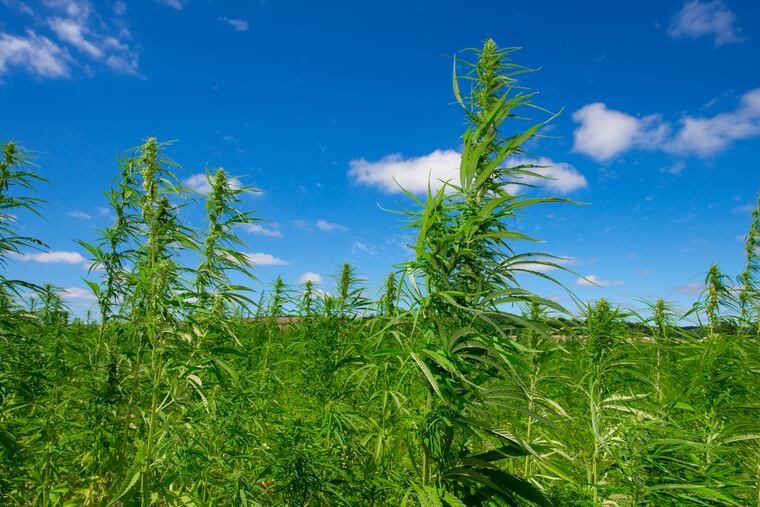Canadian cannabis giant plants a flag in Pennsylvania, plans hemp industrial parks across the U.S.
Canopy Growth is acquiring AgriNextUSA of Reading, Pa., founded by an Geoff Whaling, an evangelist for hemp. Whaling has already hired some hemp heavyweights with an eye to building Hemp Industrial Parks across the nation.

Canopy Growth Corp., the Canadian cannabis behemoth, is acquiring AgriNextUSA of Reading with an eye on building its hemp business in the United States.
AgriNextUSA has been headed by Geoff Whaling, an evangelist for hemp and its many applications. Whaling said Canopy’s chairman, Bruce Linton, called him right after President Donald Trump signed the 2018 Farm Bill that legalized hemp and asked, “When are we growing hemp?”
Whaling would not say how much Canopy was paying for AgriNextUSA.
The self-styled “Hemporer” of America sees hemp becoming a multi-billion dollar industry. Analysts for investment bankers Cowen & Co. predict that U.S. revenues for just one range of hemp products — manufactured with the extract cannabidiol or CBD — could be worth $16 billion annually by 2025.
Whaling will serve as a strategic adviser to Canopy. He has been friends with the company’s principals since the Ontario-based corporation was a tiny outfit with 20 people. Canopy now employs thousands in a dozen countries, and is the largest cannabis and hemp company with a market capitalization of $15.7 billion.
Whaling, president of the National Hemp Association and Pennsylvania Hemp Industry Council, said his first project with Canopy will be to get a hemp industrial park running near Binghamton, N.Y.
“We expect to hire a few hundred people,” he said. “This is moving very, very quickly.” Planting of this year’s hemp crop could begin in less than seven weeks.
“We want to rekindle this once-great American industry,” Whaling said. “Right now there’s no infrastructure or supply chain to support it. No equipment or facilities.”
The remedy to that, he said, is a series of hemp industrial parks across the country, complete with textile mills and CBD extraction facilities. He hopes to plant a park in Pennsylvania, “because this was once the epicenter for hemp in America.”
Ross Duffield, former manager of the Rodale Institute’s experimental farm near Kutztown, Pa., was hired by Canopy to become its national cultivation manager, Whaling said.
Hemp can be used to manufacture a wide array of items. In addition to extracted CBD, hemp’s fibers can be fashioned into textiles and advanced building materials. Its seeds are a high-protein resource for a variety of foods and oils.
Whaling said he would reach out to farmers within a 50-mile radius of Binghamton to encourage them to grow the crop. That might not be a hard sell. According to Cowen, corn and soybeans generate a few hundred dollars per acre, but the gross returns per acre for CBD hemp go up to $36,000.